"Investigating the truth about 911 - separating "fact from fiction" BBC Trailer

This web-page acts as an advert for the BBC programme and raises expectations of a fair investigation. It promises the programme will separate fact from fiction but the web page states:
"Incredibly some believe the American Government allowed or actively helped the 9.11 perpetrators"
“Incredibly” suggests the BBC had decided from the outset that to doubt the word of the US government is beyond normal human reasoning. [Sceptics]
Articles by the producer and editor linked to their web page confirm this attitude. To approach the programme from this starting point breaches the BBC Charter obligation.
“to ensure that controversial subjects are treated with due accuracy and impartiality” [Charter]
The [BBC web page] has links to articles by the programme's producer, Guy Smith, and editor Mike Rudin, also by a lecturer in American studies, Peter Knight and finally a psychologist, Dr Patrick Leman, who also devised a test - "See how conspiratorial you are" - which visitors to the website may take. In this respect it approaches the subject in rather the fun style of a popular newspaper.

Conspiracy test
Find out how conspiratorial
you are by taking our test
Indeed if you examine the articles and "interactive events" which the page links to, you may get the idea that the programme makers have already decided there is little substance in what they term “conspiracy theories”.
 There is an implication in the use of this term:-
There is an implication in the use of this term:-That those who doubt the government account are suffering from an unhealthy mental condition in which they imagine a sinister plot behind everything which happens. So doubting now makes you suspect?
Of course literally speaking a “conspiracy theory” is a supposition about a plot to be committed by more than one person. Of course there is no doubt that Sept. 11th was an unlawful plot carried out by a group of people and therefore, by definition, a conspiracy, whether you think the conspirators were al Qaeda or someone else.
So the question should not really be whether or not you are a “conspiracy theorist” but rather for which “conspiracy theory” do you find the evidence most compelling: the government’s theory about 19 suicidal Arabs, or some other.
Since Sept.11th, the term “conspiracy theorist” has been used exclusively and repeatedly to describe those who question government statements and action. Supporters of the government position are not regarded as “conspiracy theorists”, because any theory, about an external "conspiracy" advanced by the government, is assumed to be correct.
People feel secure taking authority as truth. The alternative - distrusting those that hold power over us - results in insecurity, anxiety and a pressing need to take responsibility for the lives of family and friends and for strengthening a sense of responsibility to community and society.
This natural sense of belonging is mostly long lost to the modern day individual consumer. This makes it very difficult for us to take our place "on the line" in the historic sense of [Res Publica] and thus far more important that we receive unbiased information from which we can judge apparent dangers.
The term "conspiracy theorist" is only used by the BBC in a pejorative sense - to describe those who think the government may have lied - as though it were established fact that governments never lie, never carry out clandestine operations and anyone who thinks they do must be a bit crazy. [More]
The implication in this pejorative use of the term is that nasty Arabs and Muslims might well conspire to commit mass murder, while it is ridiculous to think that nice democratic Christian or Jewish Americans could ever be involved in such a thing.
This implication is seen as racist throughout much of the Third World, to the detriment of the reputation of the US and the West.
Whilst acknowledging there have been secret negotiations throughout history for advancement of vested interests, the over all message contained in the articles by Smith and Rudin linked to this BBC Conspiracy Files website, is that sceptical enquiries made by citizens are generally due to an over-active imagination and nothing more.
Statements from Smith and Rudin proclaim great diligence in investigating the claims of "conspiracy theorists" and reassure the public that such theories are mostly imaginary.
Oxford Dictionary
conspiracy - a secret plan by a group to do something unlawful or harmful
theory - supposition or a system of ideas intended to explain something
A conspiracy theory is what the US Administration has presented to the world to explain events of Sept. 2001. No court has tried Bin Laden and he only got on the Interpol “Most Wanted” list because President Gadafy registered him in relation to crimes that the French Government claims were committed by Bin Laden on Libyan soil.
The FBI don’t list Bin Laden as wanted for the Sept. 11th events because “there is no evidence placed against him”.
Nevertheless we, the public, are expected to accept that the evidence of his nefarious activities is so strong that we must support prolonged war of aggression in two far away countries, with hundreds of thousands of resultant deaths.
The official "theory" has resulted in questions, critical comments as well as conjecture as to what actually happened. The BBC has selected some theories which can easily be demolished and are peripheral within the growing body of those who question the government’s account:-
Why does the BBC focus on these fringe issues while leaving the central issues only to be touched upon or ignored entirely?
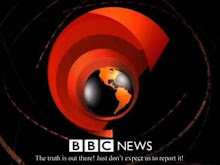

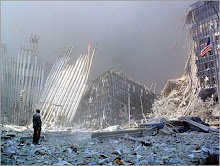
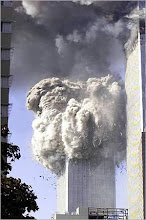
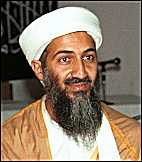
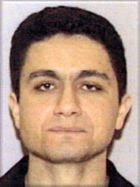

No comments:
Post a Comment